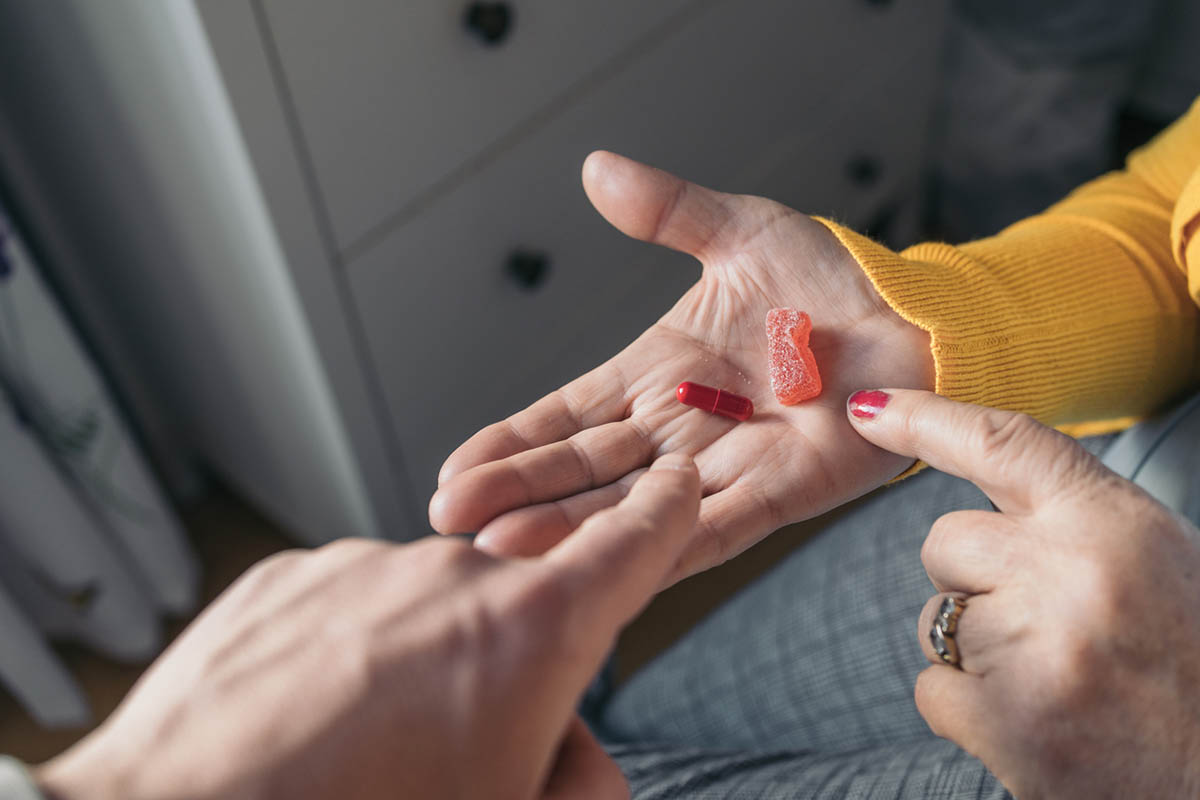Because this piece does not have an abstract, we have provided for your benefit the first 3 sentences of the full text.
To the Editor: Risperidone is known to cause hyperprolactinemia; however, it rarely causes an elevation to the degree seen in the case presented here.
Case report. Ms A, a 22-year-old woman, presented to the emergency department in February 2017 with suicidal ideation, auditory and visual hallucinations, and paranoid delusions. Ms A also heard voices that were demanding and mean, and she had not slept in 3 days due to the belief that if she slept she would die.
Symptomatic Extreme Elevation of Prolactin Related to Risperidone Use
To the Editor: Risperidone is known to cause hyperprolactinemia; however, it rarely causes an elevation to the degree seen in the case presented here.
Case report. Ms A, a 22-year-old woman, presented to the emergency department in February 2017 with suicidal ideation, auditory and visual hallucinations, and paranoid delusions. Ms A also heard voices that were demanding and mean, and she had not slept in 3 days due to the belief that if she slept she would die. She had a psychiatric history that consisted of multiple hospitalizations for paranoia and psychosis and a history of cannabis abuse. Her psychosis was never well controlled, and she had been on multiple different antipsychotics. Risperidone seemed to best control her psychosis. However, she had been noncompliant with her medication and had experienced amenorrhea while taking risperidone.
Ms A was admitted for inpatient treatment and was started on risperidone 0.25 mg in the morning and 0.5 mg at night, which was eventually increased to 1 mg twice per day. Clonazepam was added for agitation and amlodipine for hypertension. We began seeing Ms A on day 3 of her hospital admission, at which time she was still confused and disorganized in her thinking and was having auditory and visual hallucinations. She was also refusing her medications and requesting to be discharged. Thus, we adjusted risperidone to 1 mg in the morning and 2 mg at night. Clonazepam was adjusted to 0.5 mg twice/day, and diphenhydramine 50 mg was added at bedtime for sleep.
Due to Ms A’s past noncompliance with her medication, the decision was made to switch to long-acting risperidone injection. Prior to beginning risperidone injection, we checked her prolactin level, which was significantly elevated at 2,42.9 mg/dL. A head computed tomography scan was ordered, which was unremarkable. At this time, risperidone was discontinued, and she was switched to aripiprazole, titrated up to 10 mg. Four days after discontinuing risperidone, Ms A’s prolactin level decreased to 11.9 mg/dL.
On day 10 of Ms A’s hospitalization, she had a much brighter affect and denied auditory and visual hallucinations. She was discharged home with the following medications: aripiprazole 10 mg, clonazepam 0.5 mg in the morning and 0.5 mg when necessary for anxiety, and diphenhydramine 50 mg for extrapyramidal symptoms. She was also given long-acting aripiprazole 300 mg intramuscular. At discharge, Ms A had not had her monthly period, but she reported feeling that it would be coming anytime now.
According to 1 study,1 up to 66% of patients treated with risperidone have elevated prolactin levels. In a previously documented case,2 a patient taking risperidone was found to have a prolactin level of 171.6 mg/dL, which decreased to 17.6 mg/dL 10 days after stopping the medication. Another study3 involving multiple patients with hyperprolactinemia found prolactin levels up to 183 mg/dL; however, this patient was on risperidone for 10 months. As illustrated in this case, hyperprolactinemia is a common side effect of risperidone use. However, the degree of prolactin elevation seen with Ms A is very rare. If patients are experiencing side effects from risperidone use, clinicians should check prolactin levels and tailor treatment to best enhance the patient’s quality of life.
References
1. dos Santos Júnior A, Henriques TB, de Mello MP, et al. Hyperprolactinemia in children and adolescents with use of risperidone: clinical and molecular genetics aspects. J Child Adolesc Psychopharmacol. 2015;25(10):738-748. PubMed CrossRef
2. Aboraya A, Fullen JE, Ponieman BL, et al. Hyperprolactinemia associated with risperidone: a case report and review of literature. Psychiatry (Edgmont). 2004;1(3):29-31. PubMed
3. Brunelleschi S, Zeppegno P, Risso F, et al. Risperidone-associated hyperprolactinemia: evaluation in twenty psychiatric outpatients. Pharmacol Res. 2003;48(4):405-409. PubMed CrossRef
aUniversity of Nebraska College of Medicine, Omaha, Nebraska
bDouglas County Community Mental Health Center, Omaha, Nebraska
Potential conflicts of interest: None.
Funding/support: None.
Additional information: Information has been de-identified to protect patient anonymity.
Published online: September 20, 2018.
Prim Care Companion CNS Disord 2018;20(5):17l02208
To cite: KC Y, Baldridge HM, Ojha R. Symptomatic extreme elevation of prolactin related to risperidone use. Prim Care Companion CNS Disord. 2018;20(5):17l02208.
To share: https://doi.org/10.4088/PCC.17l02208
© Copyright 2018 Physicians Postgraduate Press, Inc.
Enjoy this premium PDF as part of your membership benefits!





